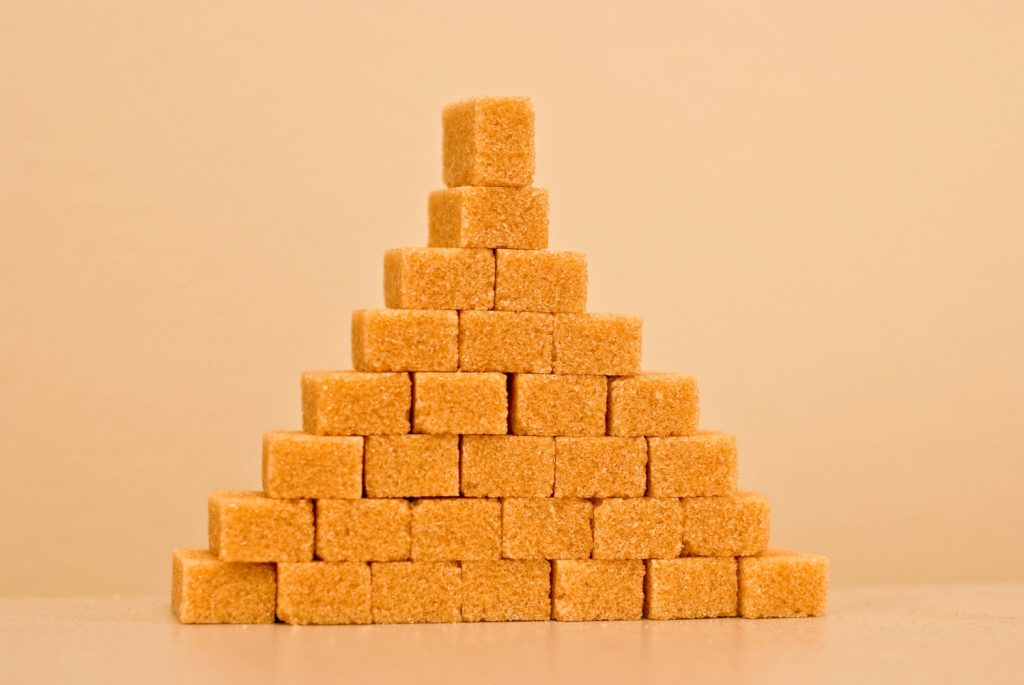Sugar, Addictiveness, and Dopamine

Apparently, looking up references to the alleged addictiveness of sugar is as addictive as the substance itself. If this level of diverse opinion persistently showed up in any other area of human interest, there would be cries of “Cover-up!”, “Conspiracy!” and the like. Some people believe that calling sugar an addictive drug is ridiculous, and then, some people believe that denying sugar’s addictiveness is the most widespread and scandalous cover-up since (reader, feel free to fill in the blank with the outrageous cover-up you most deplore).
For comparative illustration purposes, the most casual Google inquiry — “Why is tobacco so addictive?” — brings back an answer like this:
Nicotine releases a chemical called dopamine in the same regions of the brain as other addictive drugs. It causes mood-altering changes that make the person temporarily feel good. Inhaled smoke delivers nicotine to the brain within 20 seconds, which makes it very addictive — comparable to opioids, alcohol and cocaine.
Sugar does the same thing. It hits infants pretty fast, which is why babies facing uncomfortable procedures like circumcision get sugar water spooned into them. Twenty years ago, Dr. Neal D. Barnard, founder of the Physicians Committee for Responsible Medicine in Washington, D.C., wrote in the Orlando Sentinel:
As sugar touches the tongue, the taste buds send a nerve impulse to the brain, causing opiates to be released. In turn, these opiates trigger the release of dopamine, the brain’s ultimate pleasure chemical.
For people of all ages, ingesting sugar causes the brain to make dopamine and deliver it to other parts of the brain — which is exactly what illicit substances do. All addictive drugs (and sugar) are like francs and pesos and lira that the body converts into dopamine which, like the U.S. dollar, is universally accepted as payment. Dopamine is the currency in which the brain doles out rewards — until it doesn’t.
Eventually, some kind of bait-and-switch hoax or swindle takes place, after which drug use begrudgingly doles out only enough dopamine to avert punishment. Take it from every addict who ever lived: Mere pain avoidance does not feel anywhere near as good as a reward does. The reward system no longer functions, and as Steve O’Keefe quoted Dr. Eliot L. Gardner,
[O]ur goals are really two-fold: first, to rescue addicts from the clutches of their addictions, and second, to restore their reward systems to a level of functionality that will enable them to “get off” on the real world.
But why do we react so strongly to sugar? Because evolution has not caught up with reality. Back in our hunter/gatherer days, and our early agricultural era, high-calorie foods were rare. When you got hold of them, you consumed as much as you could manage, as a hedge against future malnourishment or starvation. Now, we are drowning in high-calorie foods, but our old-fashioned bodies have not adapted to that sad fact:
So, our brains still perceive sugar as beneficial and release huge amounts of dopamine when we consume sugary, high-calorie foods… That’s why it can be so difficult to resist the urge to consume sweets like candy and cake.
One demographic finds it particularly difficult to cut out sweets because their systems have long ago adapted to plenty of sugar:
When alcoholics get sober, the brain loses out of the daily sugar rush it is accustomed to from drinking. This can create intense cravings for sugar, and many alcoholics report overconsumption of candy and sweets during this adjustment period.
In early sobriety, this can be quite a heavy concern for people who have come to admit that they can’t control their alcohol intake and must quit altogether. Now, the necessity to admit that they can’t control their lust for doughnuts, either, is a potentially crushing blow. It is essential for counselors and sponsors to assure them that, as long as sobriety is the first priority, other problems can be handled a little farther down the road.
Written by Pat Hartman. First published March 1, 2024.
Sources:
“Nicotine dependence,” CAMH.ca, undated.
“The Food Fix is In,” Orlando Sentinel, July 13, 2003.
“Sugar and Dopamine: The Link Between Sweets and Addiction,” Wellness Retreat Recovery, undated.
Image Copyright: Iouri Goussev/CC BY-SA 2.0 DEED




